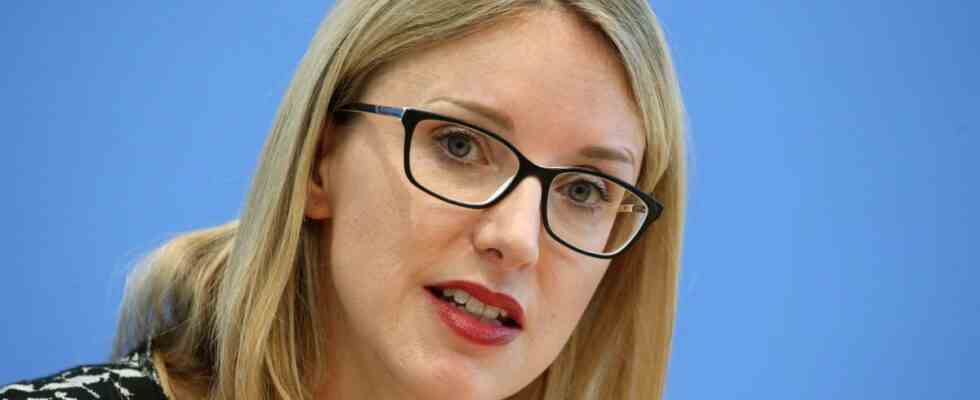In the debate about a new law on assisted suicide, the Ethics Council called for rules that protect those who want to die from making an immature decision. Precisely because the Constitutional Court has defined voluntary suicide as a fundamental right, it must be guaranteed on the other hand that such decisions are really taken in free responsibility, stressed the chairwoman of the German Ethics Council, Alena Buyx, on Thursday in Berlin at the presentation of a Ethics Council statement on suicide. At the same time, she campaigned for more suicide prevention.
It has now been two and a half years since the Federal Constitutional Court declared the ban on commercial promotion of suicide under Section 217 of the Criminal Code to be unconstitutional and void. Euthanasia organizations such as Dignitas have since been able to work again in Germany. In February 2020, Karlsruhe ruled that self-determined dying is a fundamental right and that support for suicide is also expressly permitted. However, the state may introduce rules to protect vulnerable people. Since then, three cross-party groups of MPs have submitted proposals that all want to introduce mandatory counseling for those who want to commit suicide and, depending on the draft, provide for further hurdles.
In its 134-page statement, the Ethics Council itself does not give any preference to the laws that have already been discussed in Parliament in the first reading. However, he makes it clear that the hurdles to protecting vulnerable people should be high. Due to the irreversibility of a suicide decision, “particularly high demands must be made on their personal responsibility,” it says, for example.
Suicide decisions required a high level of mental maturity
But when is a decision really self-determined? It must not be taken out of depression or external pressure, it must be considered and serious. But otherwise? The 24-strong panel of experts is by no means unanimous about the details. Example children: Suicidal decisions required a high degree of mental maturity. As a rule, this will only be raised by an adult, believes some of the experts. Others, however, also consider a procedure to be justifiable for exceptional cases, i.e. for seriously ill children who are well over their age. Another example is the obligation to provide advice: Anyone who wants to voluntarily end their life must know what that means and, above all, what other ways and help are still open to them, the members agree in principle: “Without such knowledge, one The decision to commit suicide (…) is not considered to be free responsibility.” However, part of the council thinks that those who want to commit suicide only need to be informed as much as they want to.
At such points, the statement reads as if the Ethics Council were emphasizing the self-determination of the individual more than before. Wolfram Henn, a human geneticist and member of the Ethics Council, thinks things have changed slightly: “Unlike in the past, suicide is no longer always seen as a failure of prevention,” he says. If people want to die out of necessity, for example knowing that an illness is getting worse, this decision can never be morally necessary, but in individual cases it can be morally right.
The Council is unanimous: Prevention is also important
“Justified death wishes like these are the rarest exceptions,” emphasizes the moral theologian Franz-Josef Bormann. The majority of the members of the Ethics Council have not changed their point of view: in the vast majority of cases, people do not make their own decisions, but rather out of acute depression. “A law on assisted suicide should therefore specify a test procedure that is as meticulous as possible,” he says. In times when old people are poorly cared for in homes and the mentally ill do not get any therapy places, it is irresponsible to facilitate access to suicide assistance.
Prevention is important. Here the Council is unanimous: It is “somewhat frustrating” how much is being said about the admissibility of assisted suicide instead of about preventing suicide, said Council President Buyx: According to Buyx, more than 9,000 people took their own lives in 2021 , the number of assisted suicides is likely to account for some 100 of them. When it comes to suicide prevention in all its facets, dealing with the media, counseling and training, Germany is still in its infancy.
The reports on suicides Southgerman newspaper only in exceptional cases and after careful examination. If you have thoughts about taking your own life, talk about it with friends and family. The telephone counseling service also offers help, anonymously and free of charge on 0800/111 0 111 and 0800/111 0 222 www.telefonseelsorge.de online consultation possible. The website of the German Society for Suicide Prevention offers a list of nationwide help centers: www.suizidprophylaxe.de.

